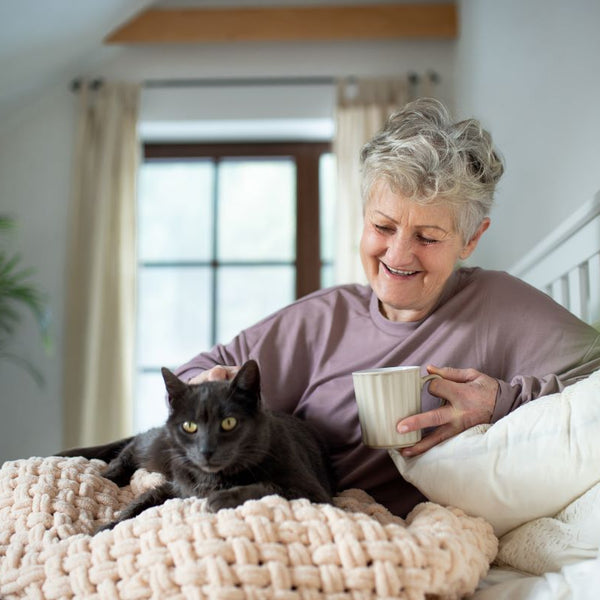Mental Health Awareness Week emphasises the importance of looking after our emotional wellbeing. In a world where everyday life can take a toll on our minds, this dedicated week serves as a platform to shed light on the importance of mental health. It encourages us to engage in meaningful conversations, break stigmas, and raise collective consciousness about the impact of mental health on our lives.
Mental Health Awareness Week prioritises self-care, support for one another, and creating environments where mental wellbeing thrives. Every year the week follows different themes promoting mental wellness. This week is important in reminding us to prioritise and support the emotional health of our elderly loved ones, who sometimes face unique challenges during their later years.
Although they have gained vast wisdom and experience over the years, it's important to recognise their potential vulnerabilities, such as loneliness, isolation, and health concerns, which can impact their mental state. This week provides a chance to start conversations, develop relationships, and establish a web of empathy.
In light of various challenges that can impact mental health, how can we effectively support the mental wellbeing of our elderly loved ones?
Social interaction
With loneliness and isolation on the rise, it’s important to try and keep your elderly loved ones connected as much as possible. Be sure to call regularly or set up video calling on Skype or Zoom for them, get family members to send letters and photos and anything else that lets them know you’re thinking of them. If your loved ones are particularly tech savvy, think about signing them up to social media so that they can make connections and stay social whilst you can’t be with them.
Try something new
Using this time to take up a new hobby or learn a new skill can be a great way to stay mentally stimulated and alleviate boredom and feelings of loneliness. It is well documented that learning a new language for example, can structurally and functionally alter the brain and make it more flexible.
If your loved ones don’t want to start enrolling in courses or taking up new hobbies like gardening or knitting, even starting a new project around the house could have benefits. Something as simple as clearing out a closet or sorting through the junk drawer can give a sense of purpose and motivation.
Relaxation and mindfulness
Stress levels are probably running higher than usual at the moment. As stress can contribute to a range of health problems and reduce immune function, it is important to actively work to reduce stress.
Doing relaxing activities such as taking a walk, reading a book or trying out some mindfulness exercises can be an effective way of reducing stress levels. Contrary to popular belief, you don’t have to sit cross legged on the floor and empty your mind to enjoy the benefits of mindfulness, you can bring mindfulness into anything you’re doing – even drinking a cup of tea.
Routine
Another factor that can contribute to stress is having our usual routines disrupted. Try and make sure your loved ones are finding ways of keeping to a routine, even if it’s different to the one they had before Lockdown. For example, make sure they are getting up and dressed at their usual time, taking a walk when they might usually do errands and eating meals at regular times. This helps maintain a sense of normalcy and structure, which may be especially important to those living with conditions such as dementia.
Keep active
Moving your body is not only good for your physical health, it’s good for your mental health too. Physical activity releases hormones that make you feel good and reduce stress. Feeling healthier because of exercise can also make you feel happier and more in control of your health.
Exercise needn’t be strenuous, gentle stretching and taking a walk can suffice. It’s always best to start small and build exercise up gradually.
Finding a little extra support
At TakingCare we’ve been providing personal alarm services for more than 35 years. We offer 24/7 help at the touch of a emergency alarm for elderly unit, plus a medical support line staffed by qualified nurses. We also have pharmacists on hand to answer questions on pills and prescriptions.
We can’t fix loneliness, but we can offer another connection for older people – helping them to remain independent and in control. And we can give you some tips on how to talk to parents about care.
If you’re worried about an elderly family member’s wellbeing or feel that they may be suffering from depression or anxiety, the following resources may be useful:
Download the Staying Connected guide
Our Staying Connected guide will help you understand the symptoms of loneliness and address the causes. The guide provides information, resources and advice to help your loved one overcome loneliness, build meaningful connections and be their best in later life.




